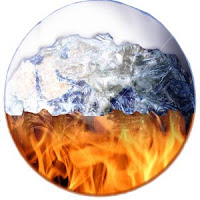Nowadays the world we live in has many problems, not only economics, political or educative, but also environmental. This are the world’s biggest problems:
- Economic Collapse : Fragilities in the current global economy could tip the developed world into conditions not seen since the 1920s.
- Peak Oil : Petroleum has powered the modern world for almost 100 years; today, many industry insiders say that we may be reaching a permanent peak in oil production.
- Global Water Crisis : Over the last 50 years the human population has nearly tripled, while industrial pollution, unsustainable agriculture, and poor civic planning have decreased the overall water supply.
- Species Extinction : Certain species that human beings depend upon for our food supply are going extinct; if their numbers fall too low we may face extinction ourselves.
Rapid Climate Change : While the debate rages on about the causes of climate change, global warming is an empirical fact. The problem is both a curse and blessing, in that people from different cultures will either have to work together or face mutual destruction.
There are lots of troubles, but I chose one: GLOBAL WATER CRISIS, because it is as important as the others, but this for me it's the main problem that we have to fix.
Water, simply put, makes the existence of the human race on this planet possible. With few exceptions, water has always been a natural resource that people take for granted. Today, the situation has changed. Water is becoming an increasingly scarce resource. According to the World Bank and World Health Organization, 2 billion people lack access to clean water and 1 billion people do not have enough to even meet their daily needs.
Every day an increasing amount of pollution seeps into rivers and lakes making them toxic to humans, and underground aquifers , our most significant sources of water, are being depleted at an alarming rate. By 2050 the number of people on the planet is projected to exceed 9 billion, and if current trends continue more and more useable water will be lost. Making an adequate supply of water available to everyone alive today is a monumental task, and ensuring that there is enough water for all future generations will require an unprecedented level of international cooperation and compassion.
Humanity has approximately 11 trillion cubic meters of freshwater at its disposal. Groundwater aquifers contain over 95% of this water, while rain, rivers, and lakes make up the remaining 5%. Approximately 1,700 m3 of water exists for every person on the planet, an alarming low number. According to the Water Stress Index, a region with less than 1,700 m3 per capita is considered “water stressed”.
The global supply is not distributed evenly around the planet, nor is water equally available at all times throughout the year. Many areas of the world have seriously inadequate access to water, and many places with high annual averages experience alternating seasons of drought and monsoons.
Graph 1 shows water availability per person within a country.
Water usage differs highly between developing countries and developed ones. Developing countries use 90% of their water for agriculture, 5% for industry, and 5% for urban areas. Developed countries use 45% of their water for agriculture, 45% for industry, and 10% for urban areas. In the last century water usage per person doubled, even as the total population tripled, creating a situation today where many areas of the world are consuming water at an unsustainable rate.
Graph 2 highlights in red all the areas where water is being consumed at a nonrenewable rate.
In the coming decades, water crises will likely become increasingly common. If the population continues to grow at a rate of 1 billion people every 15 years, the Earth’s capacity to support human life will be severely strained. Population growth notwithstanding, the current supply of water is being degraded by pollution, overdrawing, and climate change.
It is not too late to guarantee a safe supply of water for everyone alive today and for all future generations; although to do so would require an unprecedented level of international cooperation, trust, and compassion.
WATER the essential ingredient for life on this planet¡¡











0 comentarios:
Post a Comment